Tag Archives: open source
Software Citation Comes of Age
Scott Edmunds - June 22, 2021

Following the publication of a new software citation guide we explain more the practicalities and importance of citing research software.
Gigantum Joins the Giga Reproducibility Toolkit
Nicole Nogoy - June 2, 2021
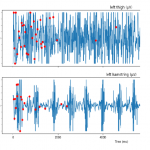
Joining our Giga reproducibility toolkit is Gigantum, with a new paper being our first example using this platform for better collaboration, sharing and making reproducible research easier.
GigaByte and River Valley Technologies push the boundaries of Executable Research Articles using Stencila and Code Ocean
Scott Edmunds - February 25, 2021
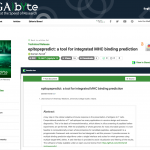
Today GigaByte publishes its first Executable Research Article (ERA), using technology from Stencila and Code Ocean to showcase interactive and executable versions of the figures.
Play it again, SAMtools. Q&A with the SAMtools team on 12 years of providing bioinformatics “glue”
Scott Edmunds - February 17, 2021
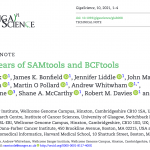
Today we publish the first update in 12 years describing what’s new in SAMtools, and for the first time the associated BCFtools and HTSlib software library. Here is a Q&A with the authors.
A New Monitoring Tool Empowering Infectious Disease Detectives
Scott Edmunds - October 22, 2020
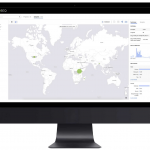
Out this week in GigaScience is a new monitoring tool empowering infectious disease detectives. Scientists in Cambodia, who are supported by the Chan Zuckerberg Initiative, the Chan Zuckerberg Biohub, and the Bill & Melinda Gates Foundation, used the new IDseq tool to help confirm and sequence the whole genome of the country’s first case of COVID-19. Read more here.
Certified Reproducibility. Q&A on ShinyLearner & the CODECHECK certificate, pt. 1
Scott Edmunds - April 7, 2020
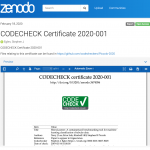
Out today in GigaScience is ShinyLearner, a new tool to make it easier to perform benchmark comparisons of classification algorithms. This tool stands out by making this process super systematic and reproducible, and despite needing to interface with many different libraries and languages it uses software containers (and a CodeOcean demo) so end users don’t […]
Bioinformaticians Baking in Blazing Basel: ISMBECCB and BOSC 2019
Scott Edmunds - August 8, 2019
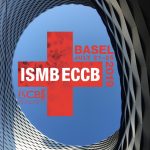
In Sultry Switzerland, Bioinformatics is Radiant at ISMBECCB Regular readers will know GigaScience originally launched at the 2012 ISMB (Intelligent Systems of Molecular Biology) meeting in Long Beach, and every subsequent year the conference has held a special place in our hearts as the place where we celebrate our birthday (see all the previous write-ups […]
iMicrobe: Fostering Community-Driven Science and Data Discovery. Q&A with Bonnie Hurwitz
Nicole Nogoy - August 2, 2019

Author Q&A with Bonnie Hurwitz on the iMicrobe platform for open science and metagenomics, relevant to our FAIR principles and reproducible research.
GigaBlog meets Gigantum: Guest Post from Tyler Whitehouse, Dean Kleissas and Dav Clark
Nicole Nogoy - June 20, 2019

At GigaScience as our focus is on reproducibility rather than subjective impact, it can be challenging at times to judge this in our papers. Targeting the “bleeding edge” of data-driven research, more and more of our papers utilise technologies, such as Jupyter notebooks, Virtual Machines, and Containers such as Docker. Working these tools in to […]
2016: An Eventful Year for GigaScience
Nicole Nogoy - December 13, 2016

This year has been an eventful one, probably too eventful for many. For GigaScience it has been eventful too, although fortunately in a much more positive way than many have experienced. While there are fears of us entering a “post-truth” era, there is more need than ever for our role as promoters of transparency, reproducibility and providers of cold-hard data. We celebrated our birthday with Mickey Mouse, and experienced many other milestones. On the technical front, this year we have brought you better integration with citable and updatable methods, bigger better and broader data types, and much more. In the tradition of end-of-year-introspection, here is a summary of some of our 2016 achievements as we continue to push the boundaries of innovative publishing of all research objects and reproducible research.